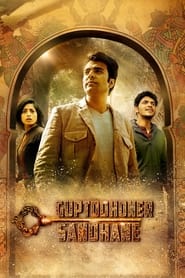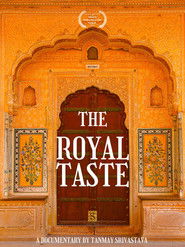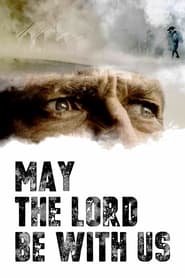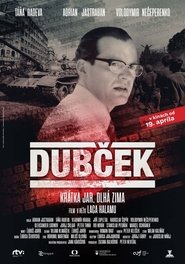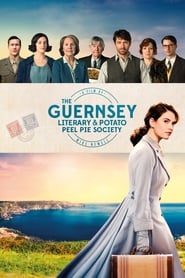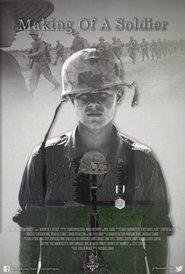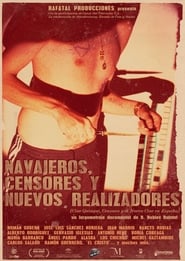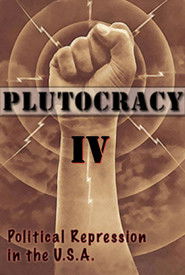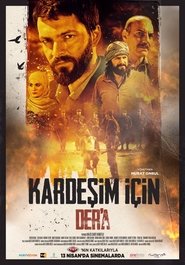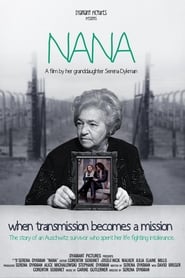New History Movies on Tub Tv - Page 287
-
Guptodhoner Sondhane
2018
Guptodhoner Sondhane
2018
star 6.6Subarna Sen, an Oxford University professor, travels to India after the death of his maternal uncle. He learns that his uncle's palace has a hidden treasure and decides to find it. -
The Royal Taste
2018
The Royal Taste
2018
This Short Documentary is about the History of the cuisine of the North Indian state of Rajasthan. -
Bimba Devi Alias Yashodhara
2018
star 4Bimba Devi alias Yashodhara is a 2018 Sri Lankan Sinhala language epic, biographical drama film written and directed by professor Sunil Ariyaratne. This historical biographical film film depicts the life of princess Yashodhara, the wife of Prince Siddhartha. -
The Traitor
2018
The Traitor
2018
star 7.51971, Odesa Film Studio. The KGB studio curator orders a re-edit of just finished movie about the events of Ukraine’s 1920s "civil war" of a young director in line with the Party’s view on the historical events. This re-editing work is entrusted to a young female editor, which consequently realizes she must protect the director’s vision and the safe-guard the truth about her country under Soviet occupation. -
An Artificial Reality
2018
We live an illusionary existence in a world filled with lies. We remain in a perpetual state of delusion. Our perception of reality has been corrupted. Big Brother knows everything, manipulates our emotions, manipulates how we think and controls the masses. We willingly allowed it because we desired it. We have become one with the machine. It’s our ultimate nightmare, and it’s about to get much worse. We will no longer be human. This is your future, an artificial reality. -
Bittersweet
2018
Bittersweet
2018
star 10In Glasgow 1952, Scottish single mother, Elizabeth has to choose between the safety of herself and her son or financial stability by inviting in her darkest nightmare. -
May the Lord Be With Us
2018
star 4.9The Defenestration of Prague, which took place on May 23, 1618, was the decisive historical moment that unleashed the Thirty Years War (1618-1648) between several Catholic and Protestant states and changed the course of European history forever. (Additionally released as a heavely edited historical documentary entitled The Defenestration of Prague, 85 min.) -
Saul's 108th Story
2018
Saul's 108th Story
2018
star 7As a teenager in 1950 Brooklyn, all Saul wanted to do was hang out with his friends and go to the beach. Instead, he got roped into a dangerous new job, and Saul got in a little over his head. -
Dubček
2018
Dubček
2018
star 4Exactly fifty years ago, social changes took place in the Czechoslovakia, which markedly shaped their history, the so-called Prague Spring was in full swing. They were headed by Alexander Dubček, the first secretary of the Central Committee of the Communist Party, a popular politician who began to implement the idea of "socialism with a human face". All hopes for change ended the invasion of Warsaw Pact troops and the strong intervention of the then General Secretary of the CPSU UV Leonid Brezhnev. The historical drama Dubček deals with the key moments of the year 1968, which fundamentally influenced not only the life of the then very popular politician, but also the life in the whole country. The whole story is conceived as a retrospective that begins and ends on the day of Alexander Dubček's fateful journey to Prague in 1992, during which he commemorates the breakthrough events of his life. -
In Between Takes
2018
In Between Takes
2018
Give a man a fish, and you feed him for a day. Give a man a video camera, and you will have a film in twenty years. Home videos are even funnier here as the cameraman – the director’s own father – was unaware he was filming. -
The Guernsey Literary & Potato Peel Pie Society
2018
star 7.4Free-spirited writer Juliet Ashton forms a life-changing bond with the delightful and eccentric Guernsey Literary and Potato Peel Pie Society, when she decides to write about the book club they formed during the occupation of Guernsey in WWII. -
Making of a Soldier
2018
Making of a Soldier
2018
The Vietnam War, like any war, is a collection of many stories that come together to form a single narrative for those who experienced it. These thoughts, emotions, and struggles all come together to create the picture that we have of the war today. “Making of a Soldier” follows Vietnam veterans’ experiences. Each story is unique and is a piece of a bigger picture. Together, it provides us a look at how everyone in the country was affected by the war, how they came home and readjusted to civilian life, and how the war continues to reach them to this day. . -
Navajeros, censores y nuevos realizadores
2018
star 6Spain. 1978. Year of the first democratic elections following the dictatorship, and of the birth cine quinqui (delinquent movies): films that rapidly became a big commercial success, showing things that were banned by the censorship not too long before. -
Arte Errante
2018
Arte Errante
2018
-
Raging Through River
2018
Raging Through River
2018
star 4Difference in generational values is perhaps as old as time itself, and can neither be explained nor resolved. An ambitious teenager is eager to explore the world by reaching the other side of the river. He meets an indifferent and unenthusiastic ferryman. The tiny ferry is not large enough to hold dissenting opinions. The ferryman considers the teenager naive while the teenager thinks the other spineless with no stance. Reflecting on the present, their conflicts and separate beliefs make a consensus almost impossible. Two people set for sail, yet only one reaches the shore. On the other side of the river, the youngster, instead of hope, witnesses the end of an era. -
Plutocracy IV: Gangsters for Capitalism
2018
Part 4 of Scott Noble's film series about Political Repression in the U.S.A. -
Kardeşim İçin: Der'a
2018
Kardeşim İçin: Der'a
2018
-
Nana
2018
Nana
2018
Maryla Michalowski-Dyamant, born in Poland, survived Ravensbruck, Malchow, and Auschwitz, where she was the forced translator of the “Angel of Death”, Dr. Mengele. She dedicated her post-war life to publicly speaking of her survival to the young generations, so that it would never be forgotten or repeated. Alice and Serena, her daughter and granddaughter, explore how Maryla’s fight against intolerance can continue today, in a world where survivors are disappearing, and intolerance, racism and antisemitism are on the rise. -
Sgt. Stubby: An American Hero
2018
star 7.9The true story of the most decorated dog in American military history -- Sgt. Stubby -- and the enduring bonds he forged with his brothers-in-arms in the trenches of World War I.
 Netflix
Netflix
 Amazon Prime Video
Amazon Prime Video
 Apple iTunes
Apple iTunes
 Apple TV Plus
Apple TV Plus
 Disney Plus
Disney Plus
 Google Play Movies
Google Play Movies
 Paramount Plus
Paramount Plus
 Hulu
Hulu
 HBO Max
HBO Max
 YouTube
YouTube
 fuboTV
fuboTV
 Peacock
Peacock
 Peacock Premium
Peacock Premium
 Amazon Video
Amazon Video
 The Roku Channel
The Roku Channel
 AMC+
AMC+
 Kocowa
Kocowa
 Hoopla
Hoopla
 The CW
The CW
 Vudu
Vudu
 Starz
Starz
 Showtime
Showtime
 PBS
PBS
 Pantaflix
Pantaflix
 FXNow
FXNow
 Tubi TV
Tubi TV
 Kanopy
Kanopy
 Comedy Central
Comedy Central
 Crunchyroll
Crunchyroll
 Microsoft Store
Microsoft Store
 Redbox
Redbox
 Sun Nxt
Sun Nxt
 ABC
ABC
 DIRECTV
DIRECTV
 Crackle
Crackle
 Fandor
Fandor
 Plex
Plex
